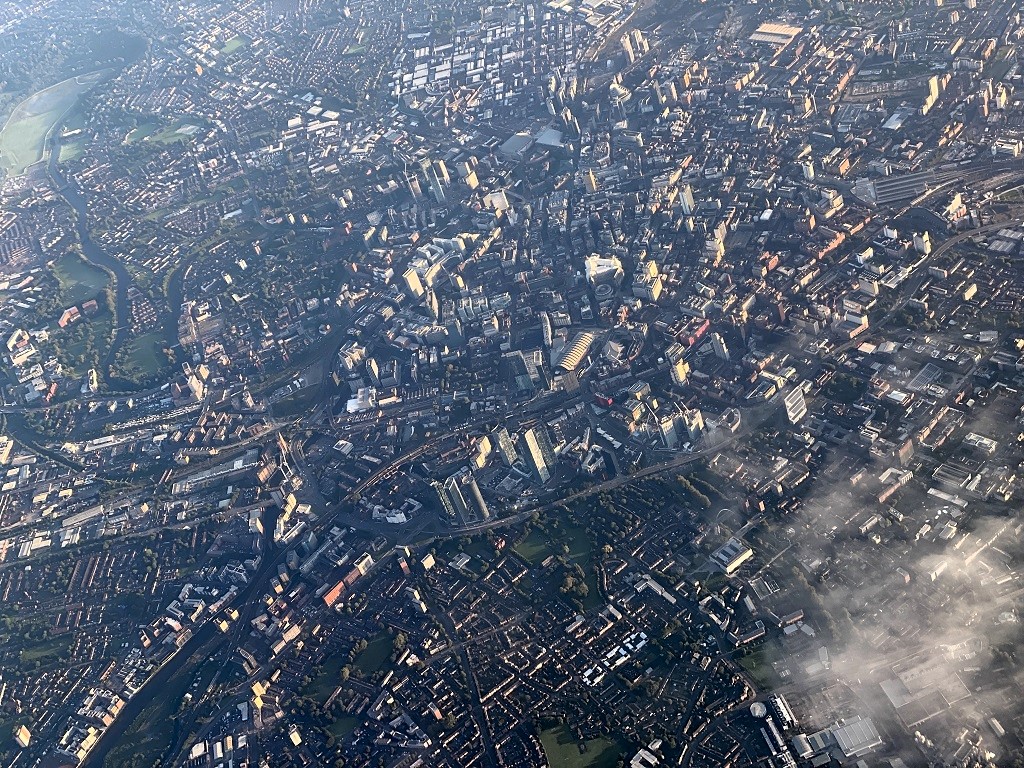Landsec returns to profit after £835m loss in 2020
Land Securities Group, the majority stakeholder in MediaCity and likely new owner of U+I, reported £275m in pre-tax profit – a more than £1bn improvement over the year before.
The London-based developer revealed it had disposed of £250m of assets in the six months ending 30 September and spent £616m on acquisitions.
Going forward, Landsec is prioritising three categories: central London offices, major retail destinations and mixed-use urban neighbourhoods.
Chief executive Mark Allan said the strategy would bring “renewed vigour to the business” and create value.
Going green
Allan announced a sustainability push for the company, alongside the release of the results.
“One of the ways that we create value is by taking leadership positions on the issues that matter,” Allan said. “Today, we are proud to set out a fully costed investment plan to transition our business towards net zero, ensuring that we deliver on our science-based target to reduce our carbon emissions by 70% by 2030.”
The full costed investment plan is £135m and will reduce the carbon emissions by 70% compared to 2013/14 figures. Landsec said the plan would focus on using artificial intelligence to build management systems, replacing gas-fired boilers with electric alternatives and increasing onsite renewable capacity.
The numbers
During the six months in the report, Landsec reported a gross rental income of £282m, down 3.8% from the year before. However, its EPRA earnings were up 56.5% to £180m.
Landsec said that it had £1.6bn in cash and available facilities and an adjusted net debt of £3.6bn, which is the same as reported in the previous six months.
Landsec has a near-term development pipeline of 2.5m sq ft.
Where U+I and MediaCity fit in
The company’s November acquisition of 75% of the shares at MediaCity and its all-cash offer for regeneration company U+I were mentioned in the report, though they were too late to be factored into the fiscal results. Chief executive Allan described how they were good examples of the company’s strategy post-pandemic.
“Initially, and in the midst of the pandemic, our priority was disposals and we made good progress in the last financial year,” he explained. “However, with the economy recovering strongly during 2021, we have been able to balance that with more focus on capital reinvestment.
“We now have a healthy pipeline of potential opportunities across each area of our business and this is affording us excellent visibility of the potential returns achievable in each area together with the associated risks,” he continued.
“Adding this perspective to opportunities across our own portfolio means that we can be more decisive in our capital allocation, confident that we are enhancing prospective returns through the decisions we make.
“Our recent £426m investment in MediaCity and our £190m recommended all-cash offer for U and I Group PLC are clear evidence of the steps we are taking in this regard. In both cases, progress against our strategy is accelerated materially,” Allan said.
“The first phase of MediaCity is an established, high-quality mixed-use location that offers attractive income-based returns while the acquisition also gives us the option of investing over £500m into the next phases of development with effect from early 2023.
“The proposed acquisition of U+I gives us the option of investing a further £600-800m into a significant, high-quality pipeline of projects over the short to medium-term, starting in 2022. Anticipated returns from the investments are in line with or ahead of our target levels and, importantly, the projects offer development optionality rather than obligation, meaning that we preserve balance sheet flexibility.”
Allan went on to describe the benefits the company will receive if its offer to buy U+I is completed.
“Not only would it bring in highly regarded, complementary mixed-use development skills, it also offers access to a significant pipeline of high-quality urban regeneration projects that give us the option to invest between £600m and £800m in the short to medium-term,” he said.
Looking ahead
Landsec is cautiously optimistic about the future, according to Allan. He acknowledged the danger another lockdown could bring to the company while stating that the vaccination programme looks likely to reduce the need for such measures. He said that supply chain disruption was likely to stay a problem, which could lead to inflation.
“We remain alert to all these risks but, overall, our outlook is one of cautious optimism,” Allan said. “We are providing high quality, sustainable office space that is very well aligned to today’s customer demands; in our retail portfolio we are generally seeing leasing activity supportive of ERVs for the first time in quite a while and increasing evidence of a ‘flight to prime’ for which our portfolio is well placed; and we are building real momentum with our mixed-use development activity.
“With a strong balance sheet, a portfolio suited to changing customer needs and a clear strategy that positions the business for long-term growth, Landsec is well placed for the future.”




